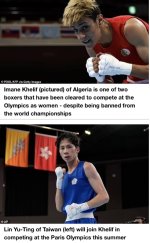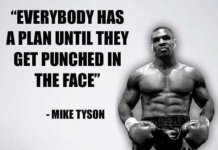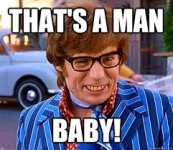Interesting... out of 14 fights, she's lost five of them.
It is interesting, & she should get to fight, but against whom? Against Women or Men (I’m probably confusing the two boxers, but is this the one that’s super high testosterone last year or is this the one that’s XY chromosomes?) or a Trans category (if that’s the case here?) or a DSD category?
Here’s a different perspective from a female Olympian boxer:
And here’s a different perspective again:
Then the IBA & IOC responding:
It’s not a clear cut black or white situation it would seem. Boxing as of this point isn’t currently on the sports program for the next Summer Olympics in LA. The IOC would need a recognized federation partner (which they don’t have at this point) just like all other Olympic sports.


The International Olympic Committee has warned against a 'witch-hunt' amid criticism of a decision to allow two boxers, who were banned for being deemed biologically male, to compete at the
Olympics as women.
Algeria's Imane Khelif and Lin Yu-Ting of
Taiwanwere disqualified from the Women's World Boxing Championships in March 2023 in New Delhi.
According to feminist website Reduxx, both are thought to be impacted by a Difference of Sexual Development (DSD), a series of medical conditions identified at birth where genitalia is atypical in relation to chromosomes.
Algeria's Imane Khelif and Lin Yu-Ting of Taiwan were disqualified from the Women's World Boxing Championships in March 2023 in New Delhi but have been cleared to compete in Paris.

www.dailymail.co.uk
The term “DSD” is referenced a lot in elite track and field, but the complex health condition is never fully explained on television broadcasts as the athletes who have differences of sexual development compete, and the meaning of DSD athletes hasn’t been made clear.
At the Tokyo Olympics, for example, Christine Mboma, 18, of Namibia won the silver medal in the 200 meters. It’s an event that she decided to compete in, along with her countrywoman Beatrice Masilingi (sixth place), because they were banned from racing the 400 meters due to their DSD conditions. Similarly, the 800 meters was contested without the defending Olympic champion, Caster Semenya of South Africa, for the same reason.
DSD stands for “differences of sexual development.” The World Athletics policies apply to women with 46, XY DSD—they have an X and Y chromosome in each cell (a typical male pattern) and male-range testosterone levels, as well as genitalia that is not typically male or female.
According to
Children’s National Hospital, DSD is not as rare as most people assume and can affect about 1 in 100 newborns.
World Athletics has restricted women with DSD from competing in specific events on the track because, officials argue, that they have an unfair advantage in strength, muscle mass, and the increased testosterone levels improve oxygen-carrying capacity.
What is “differences of sexual development,” and how do the rules affect women’s track and field? An explainer.

run.outsideonline.com






